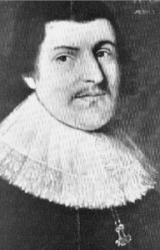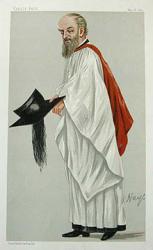Planning worship?
Check out our sister site, ZeteoSearch.org,
for 20+ additional resources related to your search.
- |
User Links
Person Results
David Willcocks
1919 - 2015 Person Name: David Willcocks (born 1919) Topics: Christ the Friend of Sinners Arranger of "REPTON" in Hymns for Today's Church (2nd ed.)
David Willcocks
Alan Gray
1855 - 1935 Person Name: A. Gray (1855-1935) Topics: Christ the Friend of Sinners Composer (descant) of "HANOVER" in Hymns for Today's Church (2nd ed.) Born: December 23, 1855, York, England.
Died: September 27, 1935, Cambridge, England.
Buried: Trinity College, Cambridge, England.
Alan Gray (23 December 1855, York – 27 September 1935, Cambridge) was a British organist and composer.
Born in York, he attended St Peter's School in York and Trinity College, Cambridge. From 1883 until 1893 he was Director of Music at Wellington College. In 1893 he returned to Cambridge to be organist at Trinity College, and remained organist there until 1930.
Among his compositions are liturgical music for Morning and Evening Prayer and the Office of Holy Communion for use in the Church of England according to the Book of Common Prayer, including an Evening Service in f minor, a setting of Holy Communion in G, several anthems, including 'What are these that glow from afar?', and a collection of descants to various hymn tunes, several of which are still in use today (Common Praise (2000) includes four). He also composed a number of items for organ, for violin solo, and for voice and orchestra to religious and secular texts.
--en.wikipedia.org/wiki/
Alan Gray
Conrad Kocher

1786 - 1872 Person Name: C. Kocher (1786-1872) Topics: Christ the Friend of Sinners Composer of "DIX" in Hymns for Today's Church (2nd ed.) Trained as a teacher, Conrad Kocher (b. Ditzingen, Wurttemberg, Germany, 1786; d. Stuttgart, Germany, 1872) moved to St. Petersburg, Russia, to work as a tutor at the age of seventeen. But his love for the music of Haydn and Mozart impelled him to a career in music. He moved back to Germany in 1811, settled in Stuttgart, and remained there for most of his life. The prestigious Cotta music firm published some of his early compositions and sent him to study music in Italy, where he came under the influence of Palestrina's music. In 1821 Kocher founded the School for Sacred Song in Stuttgart, which popularized four-part singing in the churches of that region. He was organist and choir director at the Stiftskirche in Stuttgart from 1827 to 1865. Kocher wrote a treatise on church music, Die Tonkunst in der Kirche (1823), collected a large number of chorales in Zions Harfe (1855), and composed an oratorio, two operas, and some sonatas. William H. Monk created the current form of DIX by revising and shortening Conrad Kocher's chorale melody for “Treuer Heiland, wir sind hier,” found in Kocher's Stimmen aus dem Reiche Gottes (1838).
Bert Polman
Conrad Kocher
John Goss

1800 - 1880 Topics: Jesus Christ Friend of Sinners Composer of "LAUDA ANIMA" in Psalms for All Seasons John Goss (b. Fareham, Hampshire, England, 1800; d. London, England, 1880). As a boy Goss was a chorister at the Chapel Royal and later sang in the opera chorus of the Covent Garden Theater. He was a professor of music at the Royal Academy of Music (1827-1874) and organist of St. Paul Cathedral, London (1838-1872); in both positions he exerted significant influence on the reform of British cathedral music. Goss published Parochial Psalmody (1826) and Chants, Ancient and Modern (1841); he edited William Mercer's Church Psalter and Hymn Book (1854). With James Turle he published a two-volume collection of anthems and Anglican service music (1854).
Bert Polman
John Goss
Charles C. Converse

1832 - 1918 Person Name: C. C. Converse (1832-1918) Topics: Christ the Friend of Sinners Composer of "CONVERSE" in Hymns for Today's Church (2nd ed.) Pseudonyms: Clare, Lester Vesé, Nevers, Karl Reden, Revons
=================================
Charles Crozat Converse LLD USA 1832-1918. Born in Warren, MA, he went to Leipzig, Germany to study law and philosophy, as well as music theory and composition under Moritz Hauptmann, Friedrich Richter, and Louis Plaidy at the Leipzig Conservatory. He also met Franz Liszt and Louis Spohr. He became an author, composer, arranger and editor. He returned to the states in 1859 and graduated from the Albany, NY, Law School two years later. He married Lida Lewis. From 1875 he practiced law in Erie, PA, and also was put in charge of the Burdetta Organ Company. He composed hymn tunes and other works. He was offered a DM degree for his Psalm 126 cantata, but he declined the offer. In 1895 Rutherford College honored him with a LLD degree. He spent his last years in Highwood, NJ, where he died. He published “New method for the guitar”, “Musical bouquet”, “The 126th Psalm”, “Sweet singer”, “Church singer”, “Sayings of Sages” between 1855 and 1863. he also wrote the “Turkish battle polka” and “Rock beside the sea” ballad, and “The anthem book of the Episcopal Methodist Church”.
John Perry
Charles C. Converse
Henry Lawes

1596 - 1662 Person Name: H. Lawes (1596-1662) Topics: Christ the Friend of Sinners Composer of "FARLEY CASTLE" in Hymns for Today's Church (2nd ed.) Born: January 5, 1596, Dinton, Wiltshire, England.
Died: October 21, 1662, London, England.
Buried: In the cloisters of Westminster Abbey, London, England.
Lawes, tutor to the daughters of the Earl of Bridgewater, is best known as a composer. He became a Gentleman of the Chapel Royal in 1626, and a member of the "King’s Musick" in 1631. He wrote over 400 vocal pieces, as well as anthems and instrumental compositions. His works include:
Choice Psalmes Put into Musick for Three Voices, 1648
Ayres and Dialogues (London: 1653)
Sources:
Frost, p. 680
Hughes, pp. 467-68
Nutter, p. 460
Stulken, p. 292
--www.hymntime.com/tch
Henry Lawes
Brian Foley
1919 - 2000 Person Name: Brian Foley (born 1919) Topics: Christ the Friend of Sinners Author of "How can we sing with joy to God" in Hymns for Today's Church (2nd ed.)
Brian Foley
John L. Bell
b. 1949 Person Name: John L. Bell, b. 1949 Topics: Jesus Christ Friend of Sinners Author of "O LORD, Our Lord, Throughout the Earth" in Psalms for All Seasons John Bell (b. 1949) was born in the Scottish town of Kilmarnock in Ayrshire, intending to be a music teacher when he felt the call to the ministry. But in frustration with his classes, he did volunteer work in a deprived neighborhood in London for a time and also served for two years as an associate pastor at the English Reformed Church in Amsterdam. After graduating he worked for five years as a youth pastor for the Church of Scotland, serving a large region that included about 500 churches. He then took a similar position with the Iona Community, and with his colleague Graham Maule, began to broaden the youth ministry to focus on renewal of the church’s worship. His approach soon turned to composing songs within the identifiable traditions of hymnody that began to address concerns missing from the current Scottish hymnal:
"I discovered that seldom did our hymns represent the plight of poor people to God. There was nothing that dealt with unemployment, nothing that dealt with living in a multicultural society and feeling disenfranchised. There was nothing about child abuse…,that reflected concern for the developing world, nothing that helped see ourselves as brothers and sisters to those who are suffering from poverty or persecution." [from an interview in Reformed Worship (March 1993)]
That concern not only led to writing many songs, but increasingly to introducing them internationally in many conferences, while also gathering songs from around the world. He was convener for the fourth edition of the Church of Scotland’s Church Hymnary (2005), a very different collection from the previous 1973 edition. His books, The Singing Thing and The Singing Thing Too, as well as the many collections of songs and worship resources produced by John Bell—some together with other members of the Iona Community’s “Wild Goose Resource Group,” —are available in North America from GIA Publications.
Emily Brink
John L. Bell
Henry Montagu Butler

1833 - 1918 Person Name: H. M. Butler (1833-1918) Topics: Christ the Friend of Sinners Author of "'Lift up your hearts!' We lift them to the Lord" in Hymns for Today's Church (2nd ed.) Butler, Henry Montagu, D.D., was educated at Trinity College, Cambridge, and graduated B.A. as Senior Classic in 1855, and became a Fellow of his college in 1855. Taking Holy Orders in 1859, he became Head Master of Harrow School in 1859. This position he held until 1885, when he was preferred to the Deanery of Gloucester. He held the deanery for a short time only, and became Master of Trinity College, Cambridge, on the death of Dr. W. H. Thompson in 1886. Dr. Butler has also held the important appointments of Hon. Chaplain to the Queen; Examining Chaplain to Archbishops Tait and Benson; Select Preacher at Oxford, 1882; and Preb. of Holborn in St. Paul's Cathedral. Dr. Butler edited the 3rd edition of Hymns for the Chapel of Harrow School, 1865, and the 4th edition, 1881. To the Harrow Hymn Book Dr. Butler contributed:—
1. Art thou the Healer that should come. St. John Baptist.
2. Ask and ye surely shall receive. Prayer. Last St. by J. Montgomery.
3. Jesus died for us and rose again. Death and Burial.
4. Lovest thou Me ? the risen Saviour cried. St. Peter.
5. 0 merciful and holy. Founder's Day.
6. Rejoice today with one accord. Founder's Day.
7. The night of agony hath passed. Good Friday.
8. Where shall we find our mightiest saint? St. Paul.
Of these Nos. 2 and 3 were given in the 3rd edition of the Harrow Hymn Book, 1865, and the rest were added in 1881. Nos. 3, 5, 6 and 8 are also in Hymns for the Use of Sherborne School, 1888, Nos. 5 and 6 being much altered. Dr. Butler's hymns are very lyrical and spirited and are admirably suited to their purpose.
--John Julian, Dictionary of Hymnology, Appendix I. (1907)
Henry Montagu Butler
William F. Sherwin

1826 - 1888 Person Name: William F. Sherwin, 1826-1888 Topics: Jesus Christ Friend of Sinners Composer of "EVENING PRAISE" in Psalms for All Seasons Sherwin, William Fisk, an American Baptist, was born at Buckland, Massachusetts, March 14,1826. His educational opportunities, so far as schools were concerned, were few, but he made excellent use of his time and surroundings. At fifteen he went to Boston and studied music under Dr. Mason: In due course he became a teacher of vocal music, and held several important appointments in Massachusetts; in Hudson and Albany, New York County, and then in New York City. Taking special interest in Sunday Schools, he composed carols and hymn-tunes largely for their use, and was associated with the Rev. R. Lowry and others in preparing Bright Jewels, and other popular Sunday School hymn and tune books. A few of his melodies are known in Great Britain through I. D. Sankey's Sacred Songs and Solos, where they are given with his signature. His hymnwriting was limited. The following pieces are in common use:—
1. Grander than ocean's story (1871). The Love of God.
2. Hark, bark, the merry Christmas bells. Christmas Carol.
3. Lo, the day of God is breaking. The Spiritual Warfare.
4. Wake the song of joy and gladness. Sunday School or Temperance Anniversary.
5. Why is thy faith, 0 Child of God, so small. Safety in Jesus.
Mr. Sherwin died at Boston, Massachusetts, April 14, 1888.
-- John Julian, Dictionary of Hymnology (1907)
==================
Sherwin, W. F., p. 1055, i. Another hymn from his Bright Jewels, 1869, p. 68, is "Sound the battle cry" (Christian Courage), in the Sunday School Hymnary, 1905, and several other collections.
--John Julian, Dictionary of Hymnology, New Supplement (1907)
William F. Sherwin


 My Starred Hymns
My Starred Hymns


